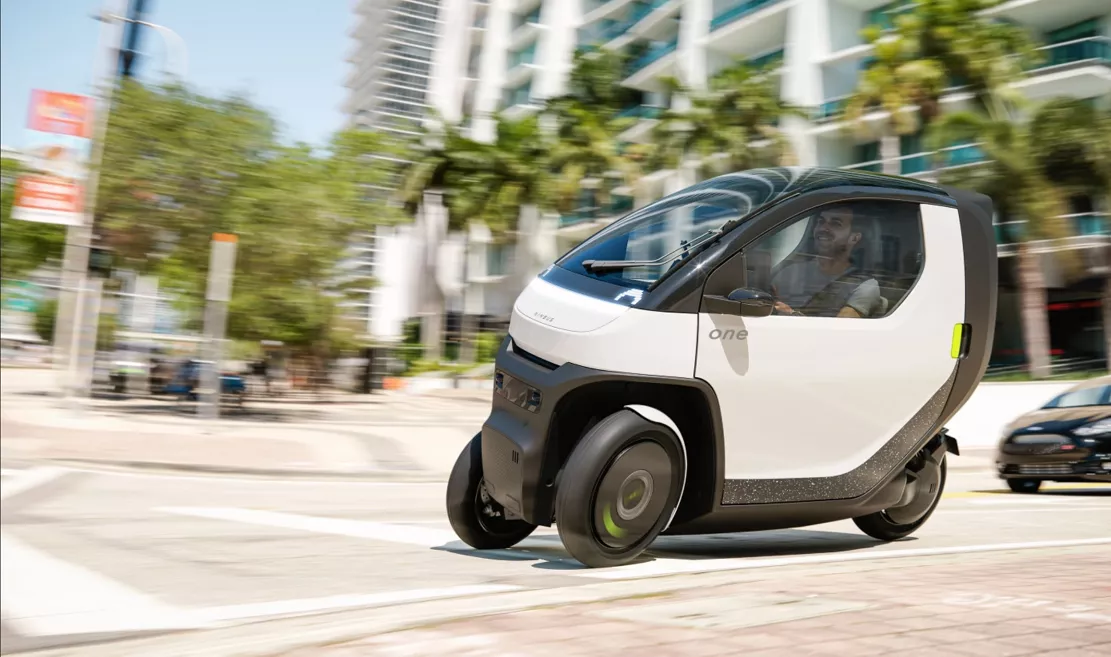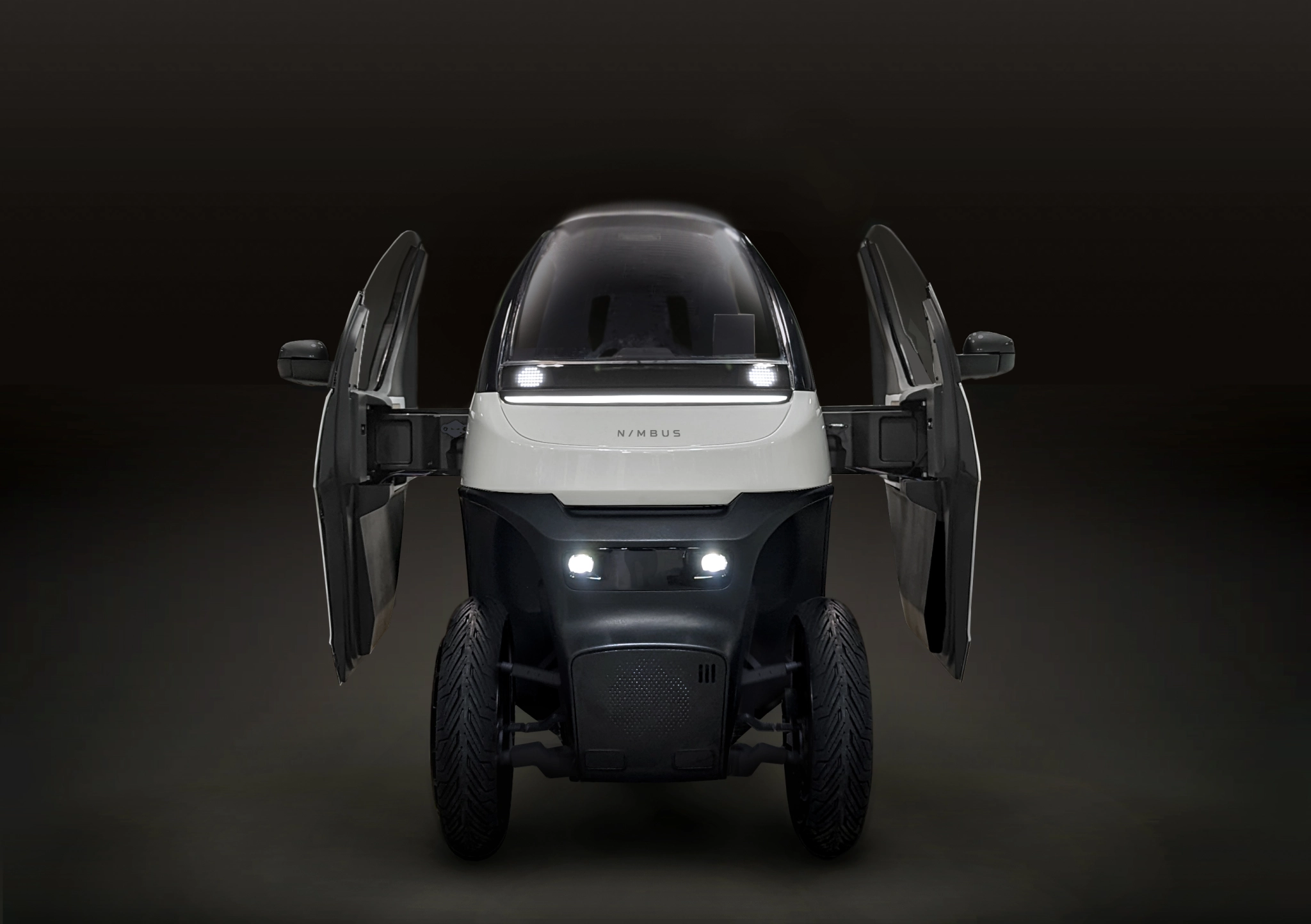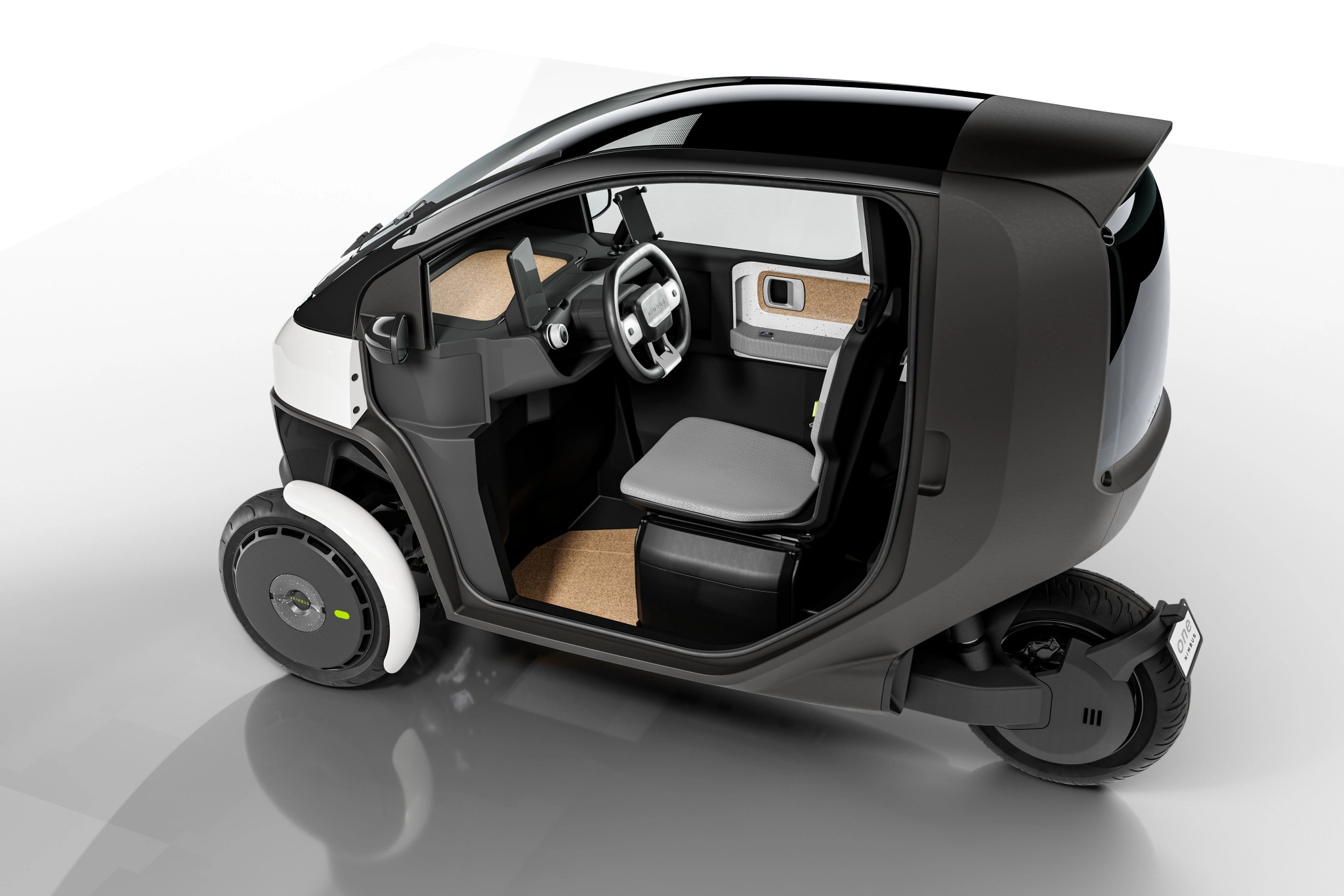With the continuous penetration of shared electric vehicle companies into cities and the sharp increase in sales of electric bicycles, micro transportation has been regarded as a panacea to save all of us from the adverse effects of fuel consuming cars and street congestion. However, a major roadblock still exists for well intentioned urban residents who want to exchange heavy and environmentally unfriendly vehicles for electric bicycles or scooters. That is, what to do when it rains?

Nimbus, a California based electric car startup, wants to solve this problem with a simple solution, which is to install a roof.
The company recently came out of stealth with its nimbus one prototype, a tiny three wheeled electric vehicle that combines the convenience and cost of a motorcycle with the safety and comfort of a car.

The thin vehicle is only about 2.75 feet wide and 7.5 feet long, which nimbus says makes it three to five times smaller than a compact car - better for parking and driving on busy city streets. It also has space behind the driver's seat to accommodate another passenger or store items. The rear seat of the nimbus will be equipped with ISOFIX sockets for baby seats.
Thanks to nimbus' patented tilting technology, the car can also tilt like a motorcycle or scooter.
Nong told techcrunch: "scooters are interesting, but they are also a bit dangerous. They tilt, so it's interesting." Pointing to the front airbag of nimbus, he continued: "our car did the same thing, but it took skills away from it. So my mother can sit in and start driving. Have you ever driven a boat? It drives a bit like a boat. You turn left, it leans to the left."
Nong pointed out that since nimbus one is classified as an automatic bicycle in the United States, it means that it is "the best of the two worlds". "We don't have to go through these strict, very expensive and lengthy procedures to obtain our vehicle certification. But at the same time, drivers don't need a motorcycle license, so anyone with a car license can use our vehicle. And they don't need to wear a helmet."
Since nimbus is built for urban driving, its maximum speed is limited to 50mph. According to the company, its 9 kilowatt hour battery has a endurance of 93 miles, 1.2 hours on a class 2 charger and 5.4 hours on a household power supply. It can be seen from gogoro's book that nimbus's battery is removable, exchangeable and can be recharged in the owner's own home.

The minimalist interior of the nimbus one also includes a display, Bluetooth connected speakers, power windows, a fast phone charger, heating and optional air conditioning. According to the company, the car also has a front collision warning, and other functions can be obtained through OTA in the future
The pre order of nimbus one began last weekend, and the test drive will be provided within one month. Nong said the company charged a down payment of $100 per order. The direct purchase cost of the vehicle itself is about $9980, but the company also plans to offer a subscription service at $200 per month.
Nimbus predicts that the upcoming advance orders will be delivered for the first time in the third quarter of 2022, but the company has not yet selected the starting city. Nong said that nimbus will be launched city by city, partly because the company can establish appropriate after-sales services and provide vehicle maintenance services in each city as the company develops.
Nong said that although he expected that most of nimbus' business would come from direct sales to consumers, the start-up company was also negotiating with some shared micro mobile operators, other vehicle sharing projects and food and grocery distribution companies. All vehicle functions such as door locks, power windows, speakers, and even steering, braking and vehicle speed can be controlled by the central control unit of nimbus and accessed through API, which makes the vehicle highly compatible with the vehicle sharing plan. In addition, vehicles can be equipped with up to four 2.2 kwh replaceable battery packs, a feature that has the potential to reduce the administrative costs associated with charging shared fleet vehicles.
Of course, the manufacturing cost of any vehicle has never been as high as today, so nimbus needs to raise another round of funds before it can be put into production. The startup hopes to raise $20million in equity and $10million in debt for its round a financing and introduce a customer who is also a strategic investor.
Nimbus completed the seed round financing of $4.7 million in August last year. In addition, nimbus hopes that the investors in this round of financing -- Thiel capital, jam fund, conference, ponooc and gainels -- can continue to enter the next round of financing.